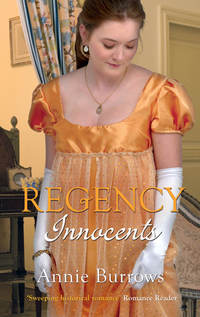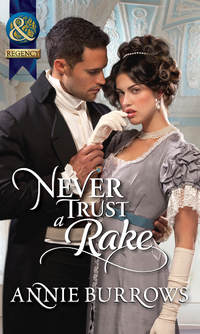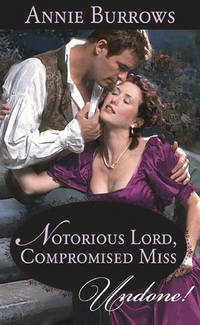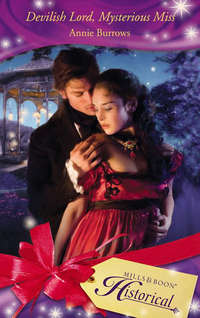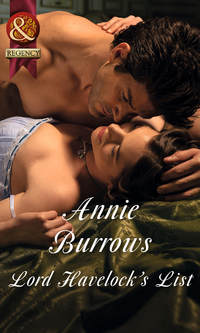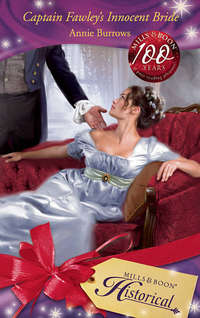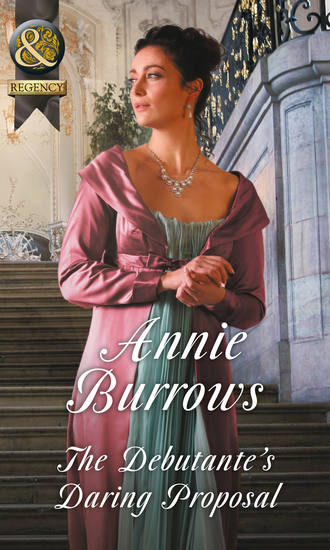
Полная версия
The Debutante's Daring Proposal
He must have rowed upstream for the best part of an hour. But no matter how hard he pushed himself, he could not achieve the clarity of mind that being out on the open water normally bestowed.
Infuriated to find that he couldn’t even escape her out there, he allowed the current to carry him back to the boathouse, and stalked to his study in the hopes that he could bury himself in work. And this was the result.
‘I appreciate you are in a most awkward position, Rowlands,’ he said as he sat down. ‘I am asking you to carry out orders of which she does not approve. I know that she comes here far more often than I and that you have been used to doing her bidding for some considerable time.’
Rowlands flushed. ‘We were all that grateful she took up the reins when your father dropped them, my lord,’ he pointed out. ‘Begging your pardon for saying so.’
‘No need to beg my pardon for that. She did a sterling job, considering. I am well aware that had it not been for her, I may not have inherited estates that were in such good working order.’ And he really ought to feel more grateful to her than he did. ‘Nevertheless, she has not studied modern farming methods, the way I have. Nor is it her place to run things now that I have reached my majority.’
‘No, my lord,’ said Rowland. And took a breath, then closed his mouth.
‘Yes, what is it? You may as well tell me, so that we can clear the air once and for all.’
‘Well, it’s just that with her ladyship being so used to getting her own way, in these parts, it might be helpful to all of us down here if you would have a word with her.’ His face went beetroot-red.
‘Point taken,’ said Edmund.
It was for him to tell his mother to cease interfering with his plans. With an effort, he returned to discussing estate business with the poor man who would have to carry out those plans in the face of probably strident opposition from Lady Ashenden. But he could only manage to keep part of his mind on turnips, drainage and potential yields. The other part kept straying back to Georgiana and the way she’d looked in that gown. The wild, almost primitive surge of lust he’d experienced after breathing in her pure, undiluted scent. His insane desire to prove to her, right there on the riverbank, that he was just like any other red-blooded man.
No wonder his sleep had been so disturbed the night before after a scene like that. Especially as she’d told him that she would hold him personally responsible for whatever happened to her in London.
And as the day wore on, and his mind kept straying to Georgiana’s proposal, a couple of other things she’d said started to niggle at him. For instance, she’d flung the words, ‘Out of sight is out of mind with you, isn’t it?’ As though she was accusing him of turning his back on her. Which made no sense. For she was the one who hadn’t answered any of the letters he’d written to her. Apart from, ironically, the first. The note he’d thrust into the gap between the stone wall and the gatepost of the main drive, which was where they’d always left messages for each other if they couldn’t meet at their place for any reason.
Dr Scholes has persuaded Mother that I need to live in a warmer climate if I’m going to reach adulthood. I am leaving tomorrow. But I will write to you. Please write to me, too.
She’d written back.
I will. I will miss you.
Miss him—hah!
The footman, who’d been about to remove the cloth and bring in the port, flinched. Which alerted Edmund to the fact he must have actually said the word, rather than just thinking it.
Which infuriated him even more. Dammit, he couldn’t even sit down to dinner in peace because of her. He hadn’t been this unsettled since...since he’d first gone to St Mary’s. And waited for letters that never came. Six months it had taken him to accept the fact that she wasn’t going to keep her word. That she didn’t miss him at all.
He unstoppered the decanter which his footman had placed, warily, at his left hand and poured himself his usual measure. When he thought of the hours he’d spent, walking along the beach, howling his protests into the wind so that nobody would witness his misery, he couldn’t help grimacing in distaste.
It had taken a stern talking-to from Dr Scholes to put an end to it.
‘It is as well you learn what fickle creatures females are,’ the elderly scholar had told him. ‘Not that they can help it. They may well mean whatever it was they said at the time they said it, but five minutes later another idea will come into their head and they will forget all about the first one. Or simply change their mind.’
The explanation had made so much sense it had made him feel like the world’s biggest fool. He should already have learned, from the example of his parents, that men and women never said what they really meant, but only what they hoped would get them out of hot water. But it had been Georgie’s casually broken promise that had made him vow never to trust another person so much that he became that vulnerable, ever again.
And until he’d gone to the stream in answer to her summons, he had kept that vow.
He got to his feet abruptly, waving permission to the hovering footmen to clear the table. There was no clarity of thought to be found in port. What he needed was a good night’s sleep. But he was not likely to get it, not with his head still so full of Georgiana.
So he went to his study, sat down at his desk and out of habit when first considering a complex problem, drew out a fresh sheet of paper and trimmed his pen. But what to write, when it came to Miss Georgiana Wickford?
Why is she angry? he wrote. As though he’d betrayed her, not the other way round. What could possibly make her think that? He hadn’t chosen to leave. To leave her alone. So it couldn’t be that. But...
He closed his eyes, and concentrated. And another inconsistency popped up.
If she was so angry with him, why had she asked him to marry her?
It made no sense.
Especially not when she’d told him she’d almost expected him to wriggle off the hook.
From where, he wondered indignantly, had she acquired such a low opinion of him? He was a man who kept his word. Why, he’d even gone to the stream, in answer to her summons, because of a promise he’d made when he’d been too young to know any better. Even though she’d broken hers to him.
Angrily, he scratched another question mark. And put the matter aside. Because all he was doing, by concentrating on Georgiana, was getting even more angry than when he was trying not to think about her at all.
* * *
The next day, during the hours when he was supposed to be going over the accounts, his mind wandered to Georgiana’s peculiar view of what a London Season would be like. And he got a vivid flash of himself, as a bewildered youth, being put on a coach and shipped off to St Mary’s.
He leaned back and twirled his pen between his ink-stained fingers. She was clearly as scared as he’d been back then, about going to what was, to her, a foreign country. He seemed to recall that he’d even had the odd notion that he was being sent into exile, for some crime he hadn’t been aware he’d committed.
That same fear might explain why she had acted so irrationally and said so many other things that made no sense. Perhaps all she needed was reassurance. Perhaps he would not feel so guilty about not being able to accede to her ridiculous demand she marry him, if he could explain that, for him, going to the Scilly Isles had turned out to be the best thing that had happened to him. Once he’d stopped bewailing her betrayal, that was. Dr Scholes had encouraged him in all his studies, even going so far as helping him catalogue the incredible variety of moths to be found on the Isles at various times of the year. He’d encouraged him to row, regularly, which had improved his physique to no end. He’d allowed him to mix with the locals, too.
There, that was something he could do. Encourage her to look upon her London Season as an opportunity, rather than a form of torture.
Because he couldn’t leave things as they were. His conscience wouldn’t permit it, no matter how often he told it to be silent. It kept reminding him that he’d made a promise. And even though he couldn’t keep that promise in the way she thought she wanted him to, he ought to find some other way to prove he was not the sort of man to wriggle off the hook.
* * *
The next morning, when he was out rowing on the river, he came up with an answer that was so utterly perfect he couldn’t imagine why he hadn’t suggested it to her at once.
There were men who, for various reasons, did seek out the kind of marriage she’d asked him to contemplate. He couldn’t actually foresee that much difficulty in arranging such a match, if she was so sure that was what she wanted.
There. That was something constructive he could do. He could suggest she look, in London, for the kind of man who did want a paper marriage. Perhaps even offer to discreetly put out feelers to that end.
And then, once Georgie’s future was settled, maybe he’d be able to get a decent night’s sleep again.
* * *
Later that day, therefore, he sent for his carriage, heaved Lion up on to the seat beside him and set off for Six Chimneys. Lion had been a great help during their last interview. More than once, the old dog had inadvertently diffused the tension building between the two humans.
Besides which, Lion had enjoyed seeing her and she’d enjoyed seeing him.
It was the only thing about her, apparently, that hadn’t changed since their childhood—her love of dogs.
As the carriage bowled along the winding lanes that separated Fontenay Court from Six Chimneys, Edmund wondered what could possibly account for the drastic changes between the girl he’d loved and the woman who...irked him so much. Yes, irked him. Because, although she looked like a grown-up version of the girl who’d captivated him, she had none of the spark. Miss Georgiana Wickford was all...cool detachment and elegant deportment.
The very minute he’d left Bartlesham it was as if she’d turned into someone else.
Was there a connection between the two? He’d never really considered that the one might have been connected to the other, but it was most definitely the case that a, he’d left and then b, she’d changed. Apparently overnight.
Well, he’d changed, too. He was no longer the wounded adolescent in the throes of what he’d believed was his first and one true love. Even if he had behaved like one down by the stream, by grabbing her and shouting at her, and sending her away in tears.
Today, he was a rational, adult male who was in full control of himself.
And he wasn’t going to let her reduce him to...that state, again.
He gave the Tudor manor house a keen perusal as Benson drew the carriage up by the front gate. He’d never actually visited before. As a boy, he reflected ruefully as he lifted Lion down and strolled the few steps from the carriage to the front door, he’d rarely left the estate except for church on Sundays. As a man, he’d spent as little time as possible in Bartlesham, and—he paused with one booted foot on the front step—he rarely left the estate then, either. He stayed at Fontenay Court only long enough to attend to any urgent estate business, then retreated to London.
He raised the knocker and let it drop. After only the briefest pause, the door was opened by a ruddy-faced housemaid who was completely unfamiliar to him.
‘If you would please to come this way, your lordship,’ she said, bobbing a curtsy, ‘Mr Wickford will receive you in the parlour.’
He blinked. For two reasons. Firstly, though he was sure he’d never clapped eyes on the woman before, she clearly knew exactly who he was. Did he spend so little time down here that he no longer knew who inhabited the place? Georgiana had accused him of being ignorant of things he ought to have known.
It was definitely time to remedy that. The next time he came down here, he would devote at least one day to do a little mingling with the locals. Which would not only enable him to keep abreast of local news, but also convince his tenants that he intended to be an effective, efficient landlord.
Secondly, Mr Wickford? Whenever anyone said that name, he immediately thought of Georgiana’s father. The rather shabby, sporting-mad squire of Bartlesham, who always seemed to have a pack of dogs tumbling round his feet.
He and Lion followed the maid across the hall and into a small, sunlit room, where a short, fair-haired man, who had a vague look of Georgie’s father about his jawline, was standing.
‘Good morning, my lord,’ he said, sweeping a heap of what looked like curtain material from one of the chairs and wadding it up into a ball. ‘It is so good of you to call, to welcome us to the neighbourhood. An honour,’ he blustered, tossing the bundle of fabric behind the sofa. ‘Totally unexpected, I do assure you.’
Totally unexpected on Edmund’s part, too. Not that he was going to alienate the fellow by admitting he hadn’t come here to see him at all.
‘Oh, sit, please, do sit.’ The man he assumed must be the Mr Wickford the maid had meant indicated the chair he’d cleared of curtaining. ‘At sixes and sevens,’ he said apologetically. ‘Not really ready for visitors, Mrs Wickford would say. But in your case, of course...’ He petered out.
Edmund sank slowly into the proffered chair and Lion lay down at his feet with a sigh as the facts settled into order. This man was evidently the cousin of Georgie’s father, the one who’d inherited the house and land. The one who’d given her a year before evicting her.
And Mrs Wickford must be Georgiana’s stepmother.
‘She will be wishing me at the devil,’ he said, with what he hoped was a sociable smile. ‘Calling upon you all when she must be so very busy planning her removal to London.’
‘Removal to London?’ Mr Wickford gaped at him. ‘Whatever made you think...? Oh, I have it!’ He chuckled. ‘You are referring to my cousin’s widow, who has already left for Town. She and the girls moved out as soon as we moved in.’
They’d left? While he’d been getting his thoughts in order, they’d left? Before he had a chance to make amends for the way they’d parted?
Edmund went cold. Georgie had gone off to Town, believing that he’d completely repudiated her. That he cared so little about the fears she’d confessed to having that he’d left her to deal with them alone.
Even though he’d promised she could always consider him her friend.
No, he shook his head.
He wasn’t the kind of man who broke his word.
He hadn’t been trying to wriggle off the hook.
And he couldn’t bear to think that Georgie must now believe he was.
Chapter Four
Edmund’s first instinct was to get to his feet and set off for London in pursuit. To explain...
What, exactly?
Meanwhile, the young Mr Wickford was sitting down heavily on a pile of curtaining on the chair opposite and spreading his meaty fingers over his knees. ‘Yes, Mrs Wickford senior is going to launch her daughter into society, now they’re out of mourning. Has great hopes for her.’
‘Does she?’ said Edmund, as a matter of form, since he was only half-attending. He was far more concerned with imagining how Georgiana must have felt, having this man and his wife turn her out of doors a matter of hours after he’d so brutally turned down her proposal.
‘Shouldn’t be surprised if she doesn’t do very well,’ Mr Wickford was saying. ‘A taking little thing, is Sukey.’
‘Sukey?’
‘Ah, should more properly refer to her as Miss Mead, I suppose, but then she’s such a friendly sort of girl, it’s hard to stand upon form with her. Not a bit like Miss Wickford,’ he said with a shake of his head.
‘What,’ said Edmund, his hackles rising, ‘precisely, do you mean by that?’
‘Oh, well, you know,’ said Mr Wickford, waving his hands.
‘No, I am afraid I don’t.’
‘Of course, you will hardly know her, will you? Well, let us just say that she is a strange, awkward girl. Not that she can help it, I don’t suppose, given the way she was brought up. The mother died in childbirth,’ said Wickford, which was something Edmund already knew. But the reminder jolted him. Was that why Georgiana didn’t want a normal marriage? Could she be afraid of having children? ‘Disappointed my cousin immensely,’ Wickford was droning on. ‘Wanted a boy, d’you see? Well, that’s natural enough, ain’t it? Trouble is, he went and treated the girl as if she was the boy he wanted, instead of facing facts.’
That was not how it had been. Georgie’s father had simply allowed her to act exactly as she wished. Well, Edmund amended, he might have encouraged her love of horse-riding and outdoor pursuits by praising her skills. But he had definitely not attempted to mould her preferences beyond that. If she had shown an interest in...say...dolls and dresses, he was pretty sure the man would have bought her bolts of satin and lace back from the market, rather than new riding boots or a crop.
‘It was only when she got to the age where she really needed a mother,’ said Mr Wickford, leaning forward in a conspiratorial sort of way, and winking, ‘that he saw his mistake. Which was why he married again. Needed a woman to knock the rough edges off. Make her behave like a lady. And, of course, providing her with a sister like Sukey, who could set her a shining example of femininity, was an added bonus.’
Was that what people hereabouts thought had happened?
Was that, in fact, what had happened?
But—why would a man who’d allowed Georgie to run wild for so many years suddenly try to change her? If that even was his motive for remarrying.
‘And Mrs Wickford is the sort of woman who enjoys knocking the rough edges off, I take it,’ said Edmund, feeling his way forward tentatively.
Mr Wickford chuckled. ‘Do you know, whenever anyone says Mrs Wickford, I still think they mean my mother. But there’s my cousin’s widow now, as well as my own wife. Though that is taking some getting used to. Only been married a fortnight.’
‘My felicitations,’ he responded automatically and without enthusiasm.
Mr Wickford beamed at him. ‘Thank you, my lord. I do consider myself most fortunate. Couldn’t think of marriage at all before I came into this property, let alone to a woman like Sylvia Dean. Took some persuading, none the less...’
‘Indeed?’ He leaned back and raised one eyebrow, inviting further confidences. Not that he had the slightest interest in this fellow. But he’d already learned far more about what had gone wrong in Georgiana’s life in five minutes with the loquacious fool, than he’d done in ten years.
‘Oh, yes,’ said Mr Wickford, smiling fatuously. ‘Courting her took up pretty near all my time. If it wasn’t for Mrs Wickford senior being so willing to stay on here and keep the place running smoothly, I’m not at all sure I’d have taken the trick.’
Edmund didn’t think he’d reacted, but he was not all that surprised when Lion emitted a low growl. The man had admitted that permitting Georgiana and her stepmother to remain in what was, after all, their own home had not been an act of compassion at all. Instead, it had been very much to his advantage. And as soon as their usefulness had come to an end, he had promptly evicted them. In Georgiana’s case, from the only home she’d ever known. He glanced round the room as Wickford continued to enthuse about his new bride, noting, everywhere, traces of her heritage. Her father might very well have chosen the hunting prints on the walls and most of the furniture looked as though it had been handed down through several generations.
At which point, he saw another reason for the distress which had prompted her to run to him with her outrageous proposal. Not only was she being forced into taking a step which she found abhorrent, she was also losing everything she’d ever called her own. He must have seemed like her last chance to salvage something—a sort of metaphorical clinging to the wreckage of her life in the faint hope of finding a refuge that was at least familiar, if not what she really wanted.
But instead of being man enough to listen to her, really listen with a view to understanding, he’d rubbed salt into what he could now see were very deep and grievous wounds by getting angry with her. Shouting at her. Rebuffing her.
She hadn’t deserved such treatment. Even though she’d hurt him in the past, she’d been scarcely more than a child at the time. The worst she’d been guilty of was thoughtlessness. She had not deliberately set out to hurt him, he would swear to it.
His antagonism for her promptly abated. And as it did so, he could scarcely credit that he’d carried it into his adult life, or nursed it with such devotion. To repay her, as an adult, by standing back and watching her suffer, or even adding to her woes, was out of all proportion to the initial offence.
Sickened at himself, he got to his feet.
‘You will excuse me,’ he said, as a chill swept up his spine and lodged in the region of his stomach. ‘I cannot stay longer.’
‘What? Oh, dear,’ said Mr Wickford, leaping to his feet as well. ‘Mrs Wickford will be desolate to have missed you. The moment she saw your carriage stop at the foot of our drive she ran upstairs to make herself presentable. I’m sure she won’t be but a minute longer...’
‘What a pity,’ he replied mendaciously. He had no wish to meet the cuckoo who’d thrust the true chicks out of this nest. ‘I have urgent business which takes me back to London tomorrow,’ he added truthfully. Because he had to see Georgiana again. Apologise. Tell her he meant to make it up to her, somehow. And London was where she had gone. ‘So I have much to accomplish today.’
Mr Wickford wrung his hands, swallowing and looking nervously in the direction of the stairs as Edmund made his way to the front door. But he didn’t care. He didn’t even wait for the man, or his maid, to open it for him. He just needed to get away from here, so that he could think things through.
Georgiana’s past was looking very different from the way he’d imagined it. He wouldn’t have believed that her father, a man who’d always laughed at her antics, had married a woman specifically to knock her into shape. Or worse, brought another girl into the house to show her how she ought to behave. She must have been devastated.
He frowned as he stalked down the path, Lion lumbering at his heels. Surely, she would have needed to write to him more than ever? But it had been from his mother that he’d learned of her widowed father’s remarriage. His mother, who, in spite of all her flaws, had written faithfully. Back then, it had been one more sin to lay at Georgie’s door. But now...
She must have been crushed. And since he had no longer been there, she would not have had anybody to turn to. Because, now he came to consider it, not only was she his only friend, but she spent so much time with him that she hadn’t had any other friends either.
So why hadn’t she?
And why hadn’t she run to him, on the few occasions he’d returned to Bartlesham, instead of flouncing out of the shop when he’d walked in, her purchases abandoned?
It had puzzled him from the moment he’d returned, still hurt by her decision not to write to him, but determined to make the best of things, and at least attempt to treat her with courtesy. But then, on his first Sunday in Bartlesham, she’d refused to return his greeting when he’d been magnanimous enough to accord her a nod across the aisle of St. Bartholomew’s. And stalked out with her nose in the air when the tedious service had at length ground to its conclusion.
And so he’d washed his hands of her. He’d really and truly left her behind when he’d gone up to university.
And then, as he was lifting a wheezing Lion into the carriage, he recalled her accusation, that out of sight meant out of mind, for him. As if she was the one who hadn’t received any letters.
Good Lord...could it be...if the stepmother had seen it as her duty to knock Georgie into shape—in other words, to turn her into the proper young lady she appeared to be nowadays—then she would not have approved of them corresponding. Single females were not, strictly speaking, supposed to write to single men to whom they were not related.



